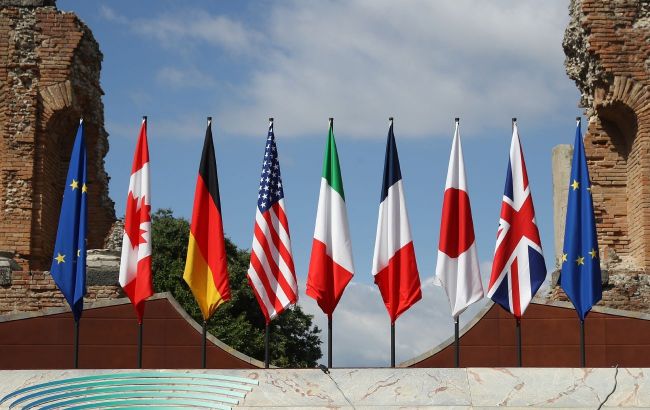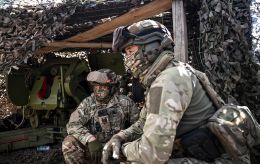G7 countries approach solution to confiscation of Russian assets for Ukraine
 Illustrative photo: G7 countries approach solution to confiscation of Russian assets for Ukraine (Getty Images)
Illustrative photo: G7 countries approach solution to confiscation of Russian assets for Ukraine (Getty Images)
The G7 countries have come close to confiscating Russian assets for transfer to Ukraine, reports the Financial Times.
Although Washington has never publicly backed confiscation, the US has privately taken a more assertive stance in recent weeks, arguing in G7 committees that there is a route to seizing the assets “consistent with international law”.
“G7 members and other specially affected states could seize Russian sovereign assets as a countermeasure to induce Russia to end its aggression,” said a US government discussion paper that was circulated in G7 committees.
According to the authors of the document, Russia's invasion of Ukraine means that asset confiscation may become "a legitimate countermeasure for those states that have been specially affected by Russia's violation of international law."
The United States believes that the topic of confiscation of Russian assets may be discussed by G7 leaders at a meeting scheduled for February 24, 2024.
British Foreign Secretary David Cameron also stated that there is a "legal route" to confiscating Russian assets. He suggested acting together with the United States if other allies are not ready to do so.
Utilization of frozen Russian assets
For several months, European officials have been exploring ways to recover the proceeds of Russian assets frozen after the start of Russia's large-scale invasion of Ukraine.
Ukraine, together with its international partners, is working to create a mechanism that will allow for the confiscation of frozen Russian assets, including state-owned assets, in allied countries. These funds should be used to rebuild Ukraine. The amount is almost $500 billion.
Bloomberg previously wrote that the EU is studying the procedure for confiscating 200 billion euros of assets. The European Commission is also developing its proposals.
It was also reported that Belgium will create a special fund for Ukraine of 1.7 billion euros. It will be filled with taxes from Russian assets frozen in Belgium.

